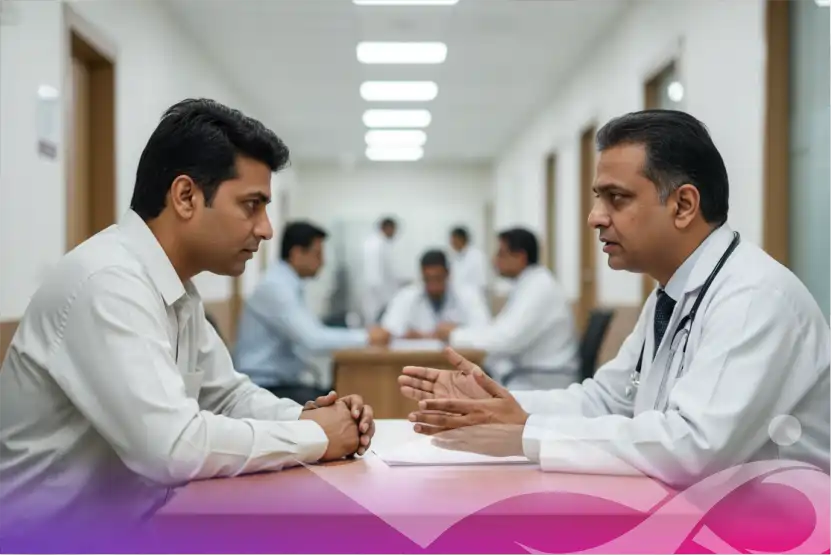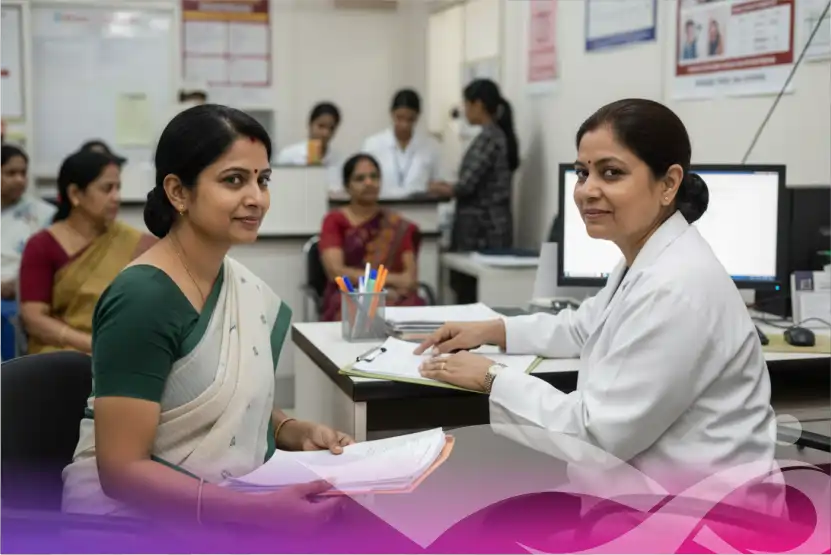Immunotherapy has revolutionised cancer treatment and given patients fresh hope since it attacks cancer using the body's own immune system. Immunotherapy can cause a unique set of reactions even if it is sometimes associated with less side effects than traditional chemotherapy. First of all, patients undergoing this advanced treatment have to know what to expect and how to manage these side effects. Top concern at IOCI is patient education and support to ensure a better course of treatment.
The Mechanism of Immunotherapy and Their Special Side Effects
Unlike chemotherapy, which directly targets fast dividing cells—both cancerous and healthy—immunotherapy works by "unleashing" the immune system to find and destroy cancer cells. Although this strong immune system activation is rather successful, occasionally it causes an excessive immune response compromising normal tissues. These are immune-related adverse events, or irAEs.
The type and degree of side effects experienced can be much influenced by the specific immunotherapy medicine, the cancer type, the general health of the patient, and other personal factors. Common side effects can resemble autoimmune diseases since the immune system targets healthy organs and tissues wrongly.
What should one expect? Common Side Effects of Immunotherapy
The following are some of the more often occurring immune-related side effects patients might run across:
- Tiredness: Among the most often mentioned negative side effects is tiredness, which ranges from mild to crippling exhaustion. It can strike at any moment during treatment and may linger for some time after.
- Reactions of Skin: Typical skin reactions are dryness, rashes, itching, vitiligo—patches of skin losing pigment. These can mildly irritate more severe blisters.
- Common gastrointestinal problems include nausea, vomiting, stomach pain, diarrhoea and colitis—inflammation of the colon.
- Endocrine Issues: Sometimes the immune system targets thyroid, pituitary, or adrenal glands, disrupting hormones. Symptoms may be changes in weight, mood, or energy level.
- Although less common, immunotherapy can cause inflammation in many organs, including the lungs (pneumonitis), liver (hepatitis), kidneys (nephritis), or heart (myocarditis). These rather severe side effects call for quick medical attention.
- Other common forms of musculoskeletal pain are joint pain and muscular aches.
Should patients experience any fresh or aggravating symptoms, they should notify their healthcare provider right once. Early identification and treatment of irAEs will help most to prevent them from becoming major problems.
Control of Side Effects from Immunotherapy: An aggressive strategy
At IOCI, managing negative immunological side effects is proactive. Closely working with patients, our complete care team—which comprises oncologists, nurses, and experts—anticipates and fixes likely issues.
- Monitoring early signs of inflammation or organ malfunction is accomplished by routinely performing blood tests and physical exams.
- Mild side effects often can be managed with supportive treatment using anti-diarrhea medications for colitis or topical lotions for skin rashes.
- Sometimes in cases of more severe immunological-related side effects, corticosteroids—also known as steroids—are used to calm an overactive immune system. There may occasionally be a need for other immunosuppressive drugs.
- We thoroughly inform patients and their families on what to expect, when to call, and how to self-manage minor symptoms.
One of the common types of cancer in India now being treated with immunotherapy is lung cancer, especially in non-smokers. Although immunotherapy offers great advantages, knowledge of its specific side effects helps to guarantee effective treatment and a good quality of life during therapy. Our staff leads patients through this, emphasising not only on cancer treatment but also on whole well-being management, including a discussion on What is cancer and its types and available Natural remedies for cancer.
Consult us at any of our locations—across IOCI Noida, Greater Noida, Mumbai, Indore, Aurangabad, Agartala, Saharanpur, Kanpur and Jodhpur.












